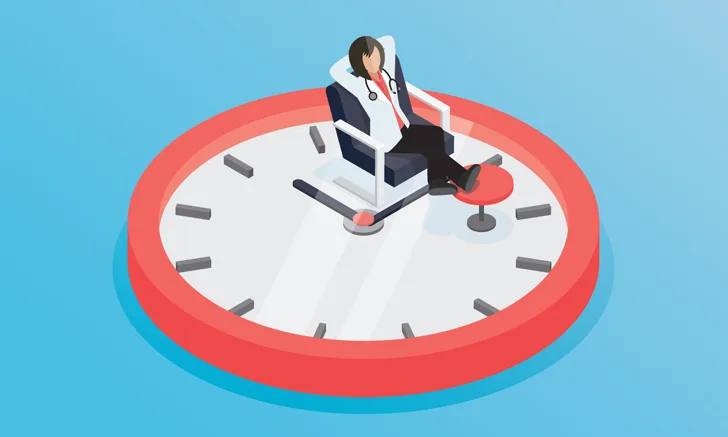Taking a Break: Difficult but Necessary
Heather Prendergast, RVT, CVPM, SPHR, Patterson Veterinary University, Las Cruces, New Mexico

Taking scheduled work breaks can be difficult for veterinary professionals, most of whom feel the patient always comes before their own wellbeing. After all, patient care is why they are in veterinary medicine, and there is always a long list of things to be done.
This may seem logical to animal healthcare providers, but working without breaks is not healthy—they are necessary for every team member because they lead to improved team and individual performance, client service, and patient care.1
Under the Law
The Fair Labor and Standards Act (FLSA) does not mandate that businesses provide breaks; each individual state’s Department of Labor decides (see State Regulations.) However, the FLSA does state that when short breaks (ie, 5 to 20 minutes) are offered, they are considered under federal law as compensable work that must be included in the total weekly work hours and when determining overtime.2 Meal periods (ie, 30 minutes or longer) are not considered work time and are not compensable. Most states do not require employers to provide work breaks. Of the few that do, California, where nonexempt employees are entitled to 10 minutes of rest for every 4 hours worked, is one example.3 Review specific state Department of Labor websites to see which states require work breaks. However, practice policy should be to provide breaks no matter the state mandate.
According to the United States Surgeon General, both mental and emotional wellbeing are essential to overall health. Team members who are mentally healthy can realize their full potential, cope with stress, and work productively, whereas those who experience anxiety, mood swings, and impulse-control disorders, often caused by stress, are more likely to turn to risky behaviors (eg, smoking, alcohol, drugs, excessive food intake) to subdue these symptoms. Such behaviors are not solution-based and provide only temporary relief.4
State Regulations
To locate state and local Department of Labor locations and regulations, visit dol.gov/whd
In the Practice
A typical veterinary practice schedule often looks like this:
Arrive at work at 7:30 am
Leave work at 6:30 pm without taking any breaks, including meal breaks
Repeat the next day
Team members often eat on-the-go while treating patients or cleaning treatment rooms or the reception area, resulting in exhaustion at the end of the day. Eating and drinking while working in hazardous environments not only violates the Occupational Safety and Health Administration (OSHA) regulations but also impacts team members’ emotional wellbeing and may violate state requirements for mandatory rest and meal breaks.
Emotionally exhausted team members likely will have difficulty caring for patients appropriately. Missing breaks occasionally may not be self-damaging, but there is a cumulative effect if continued day after day.1 Repeated assault on team member emotional wellbeing takes a toll, and taking breaks throughout the day is imperative. Eating and drinking in the break room where safety risks are minimized and following OSHA guidelines are also important.
Reset stress levels by taking 10-minute breaks after 4 hours of work. Head to the break room or take a spin outside around the practice—fresh air and sunshine help clear the mind.
Leave the building when taking a lunch break. If there is no place to go, grab a bite to eat in the break room and then head outside for a walk around the block or in a park. Just leaving the building for a short time helps regain emotional energy by clearing the mind. With the newfound energy, team members will be able to provide patient care at their normal stellar level (see Take Responsibility).
Take Responsibility
Team Member Responsibility
Take personal responsibility for managing stress.
Commit to taking 10-minute breaks after each 4-hour work period.
Do not cheat.
Communicate to team members that you are stepping outside for 10 minutes.
Delegate duties for that 10-minute period.
Practice Manager Responsibility
Develop a practice policy to adopt 10-minute breaks every 4 hours.
Enforce the policy.
Encourage team members to enjoy their breaks.
Walk the talk and also take breaks.
Conclusion
Veterinary medicine is a wonderful profession, but team members must care for themselves to prevent burnout and compassion fatigue, and to provide the best client service and patient care. Taking breaks throughout the day will help team members maintain their strength, energy, and passion for this rewarding career.